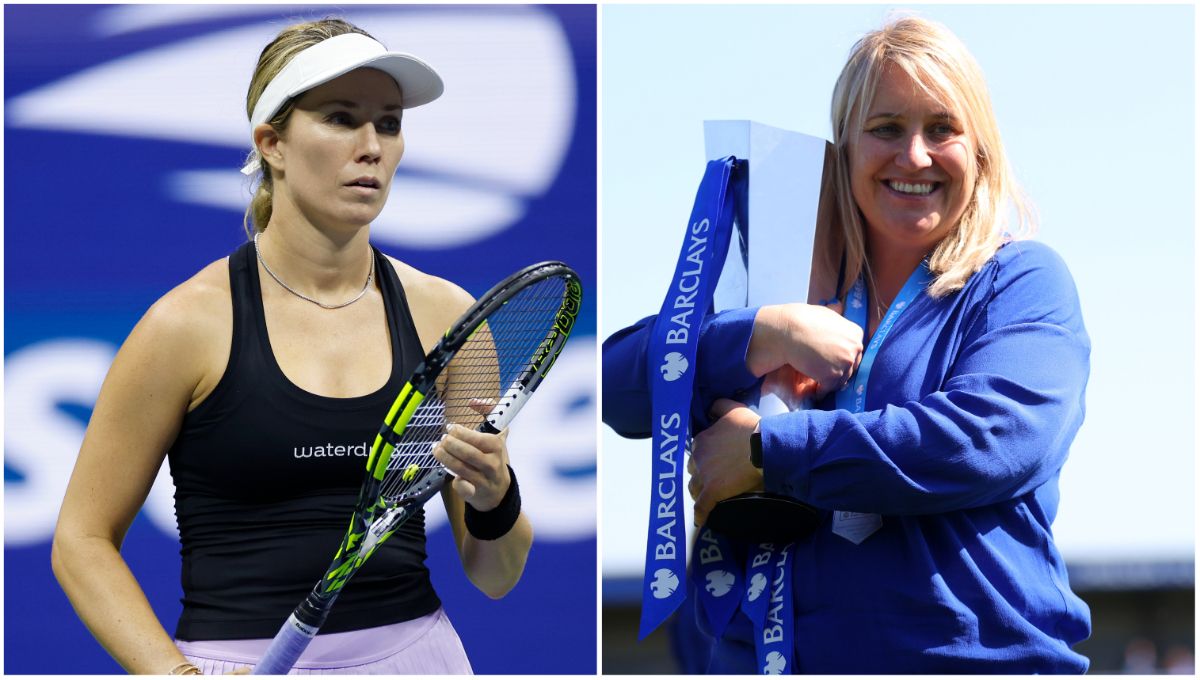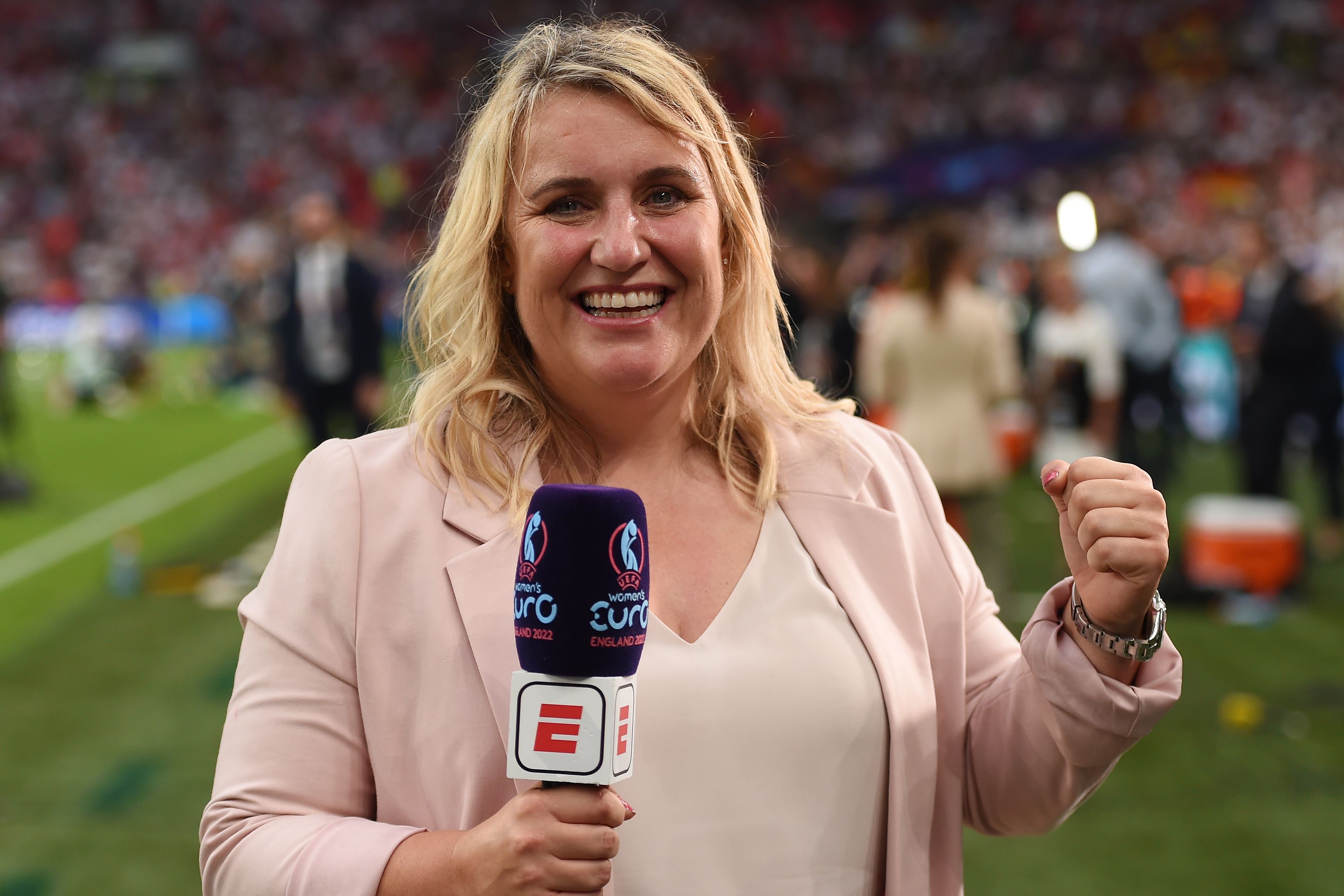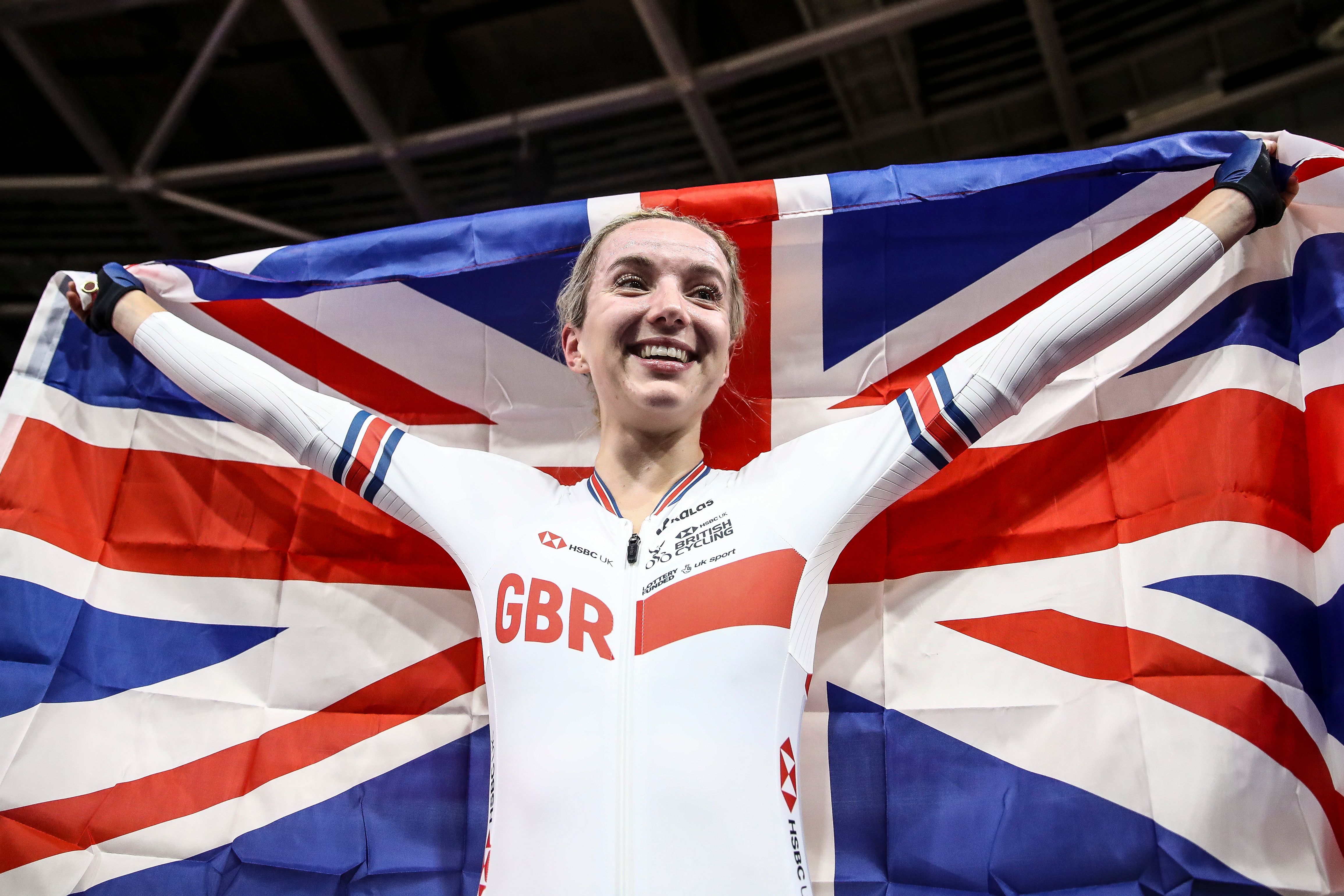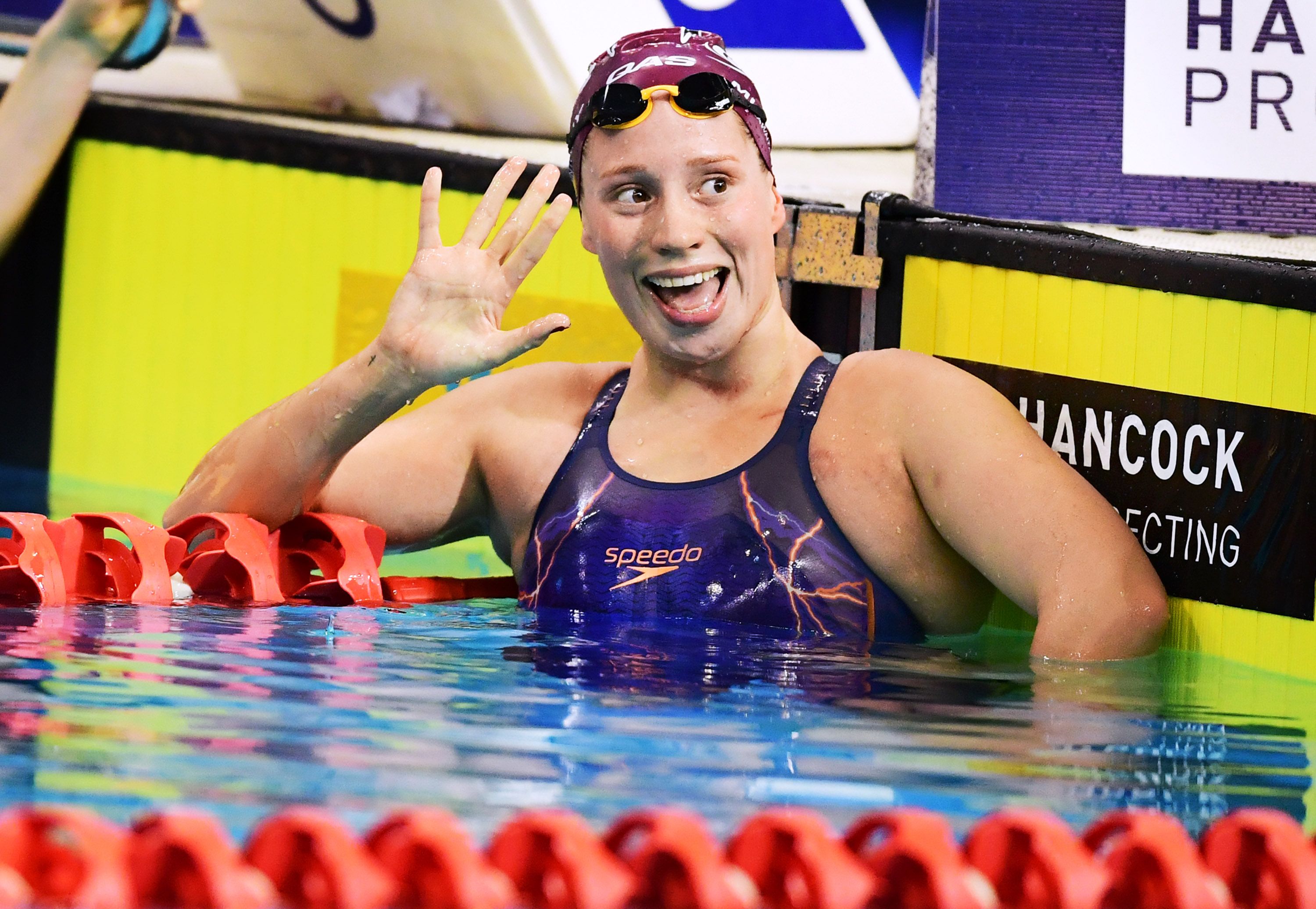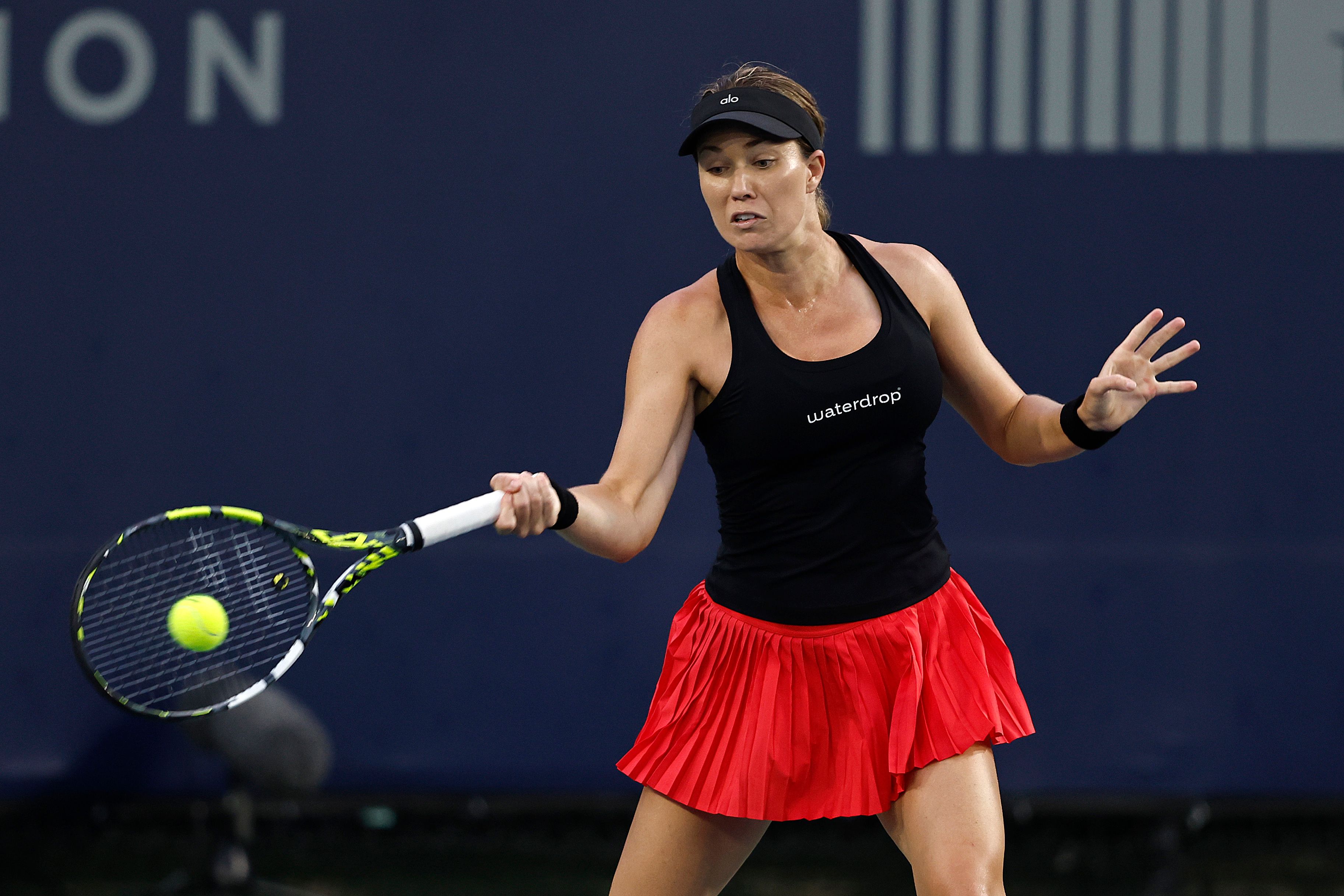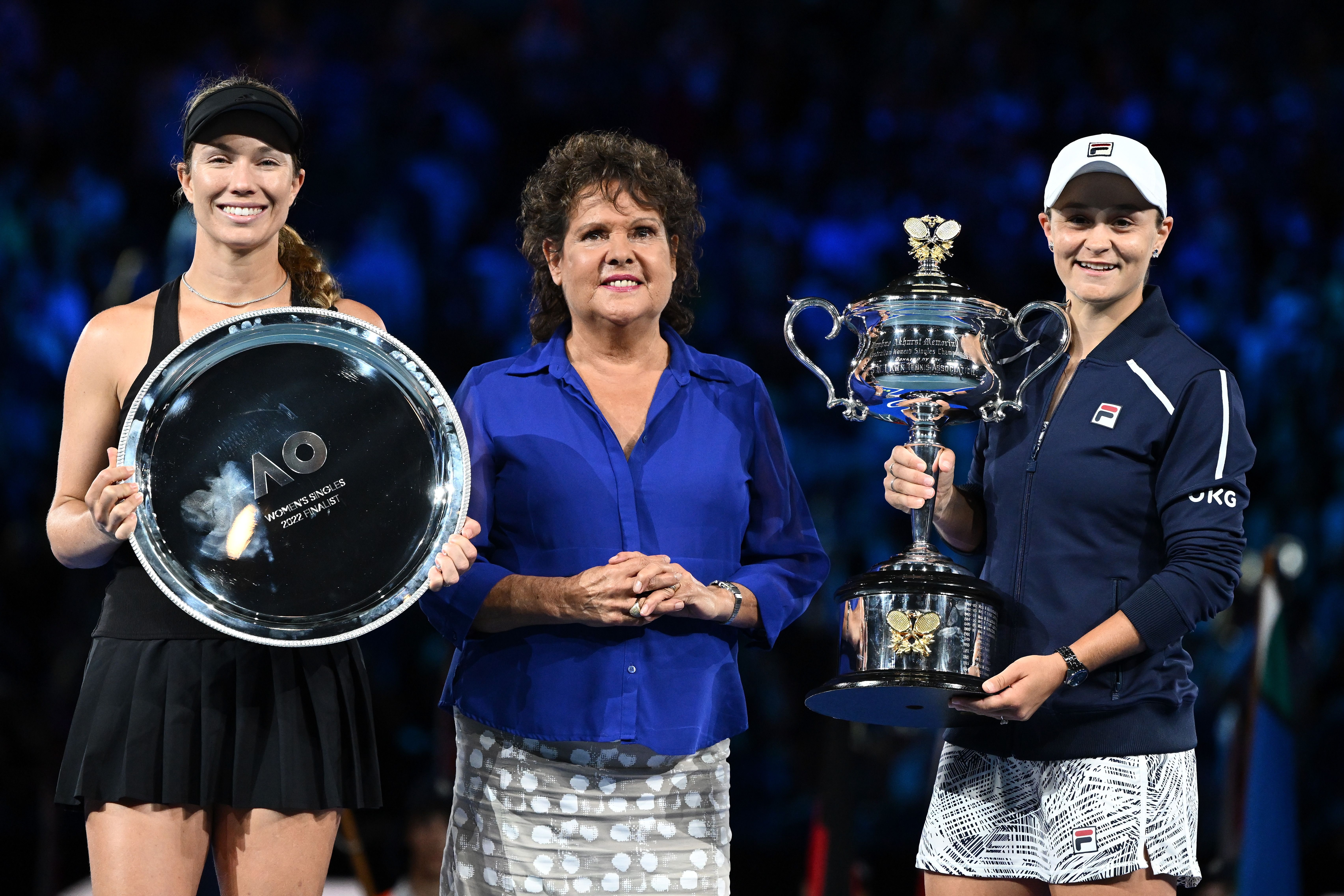Chelsea are set to be without manager Emma Hayes on the sidelines for the foreseeable future.
The 45-year-old announced she underwent an emergency hysterectomy as a result of her ongoing battle with endometriosis.
In a statement posted on Twitter, Hayes announced that Denise Reddy would be making on-field decisions, while Paul Green is set to carry out all press obligations.
"To our fans, you’ve had to listen to me bellowing from the other side of the pitch every week but now I want to hear you even louder because I’ll be sitting at home watching the team on the television until my return," she said.
"I know you’ll respect that my health comes first and at this time I’ve got to prioritise what I need to do for me.
"I fully expect to make a full recovery and I look forward to seeing you in the foreseeable future."
Hayes is not the only woman in sport currently battling endometriosis. In fact, conversations about the condition are becoming increasingly common in women’s sport.
What is endometriosis?
According to the NHS, endometriosis is a condition where tissue similar to the lining of the womb grows elsewhere, such as the ovaries and fallopian tubes.
It can affect women of all ages, although some are more badly impacted than others. Common symptoms include period pain, heavy periods and difficulty getting pregnant.
It is believed that one in ten women have endometriosis, but it takes, on average, seven and a half years to be diagnosed.
LONDON, ENGLAND - JULY 31: Emma Hayes, Manager of Chelsea, poses for a photograph as they speak to the media after the final whistle of the UEFA Women's Euro 2022 final match between England and Germany at Wembley Stadium on July 31, 2022 in London, England. (Photo by Harriet Lander/Getty Images)
How does endometriosis impact women in sport?
It’s easy to understand how endometriosis can be incredibly debilitating for female athletes.
Intense pain during an excessively heavy period is not conducive to peak athletic performance, but sportswomen with endometriosis have to find a way to deal with this on a regular basis.
"The fatigue was a real killer," British cyclist Elinor Barker told BBC Sport last year.Â
"I was exhausted all the time from having to deal with this pain.Â
"It was keeping me up at night, stopping my training sessions, stopping me from wanting to go out because I just wanted to be curled up in a ball all the time. At its worst, it would control my whole day."
BERLIN, GERMANY - MARCH 01: Elinor Barker of Great Britain celebrates after winning Women's Points Race during day 5 of the UCI Track Cycling World Championships Berlin at Velodrom on March 01, 2020 in Berlin, Germany. (Photo by Maja Hitij/Getty Images)
Many women have to make repeated visits to the doctor before they are diagnosed with endometriosis, with Australian Paralympic swimmer Monique Murphy explaining how this can add to the strain of the condition.
"Probably the hardest part about this was the mental side and not being believed," she said,Â
"I didn't want to use the excuse that I don't feel well, especially when I don't know what's going on. Maybe my body is OK, maybe I'm just not strong enough.Â
"Maybe this is what hard work feels like and I don't have what it takes."
ADELAIDE, AUSTRALIA - APRIL 07: Monique Murphy of Lawnton waves after winning the Women 400 LC Metre Freestyle Multi-Class during day one of the 2019 Australian National Swimming Championships at [VEUNE] on April 07, 2019 in Adelaide, Australia. (Photo by Mark Brake/Getty Images)
Danielle Collins overcomes painful periods at Australian Open
Tennis player Danielle Collins, who underwent emergency surgery to treat endometriosis in April 2021, is another athlete who has been open about her battle with the condition.
Her story shows that it is possible for the impact of endometriosis to be minimised on sportswomens' careers, with the American’s performances improving immensely after surgery.
Matters had reached a head for Collins in January 2021, when she was playing against Daria Kasatkina in the semi-finals of the Phillip Island Trophy in Melbourne.
Due to severe cramping in her abdominal muscles and pelvis, Collins was unable to serve properly, and lost 6-2, 6-7, 6-1.
SAN DIEGO, CALIFORNIA - OCTOBER 12: Danielle Collins of the United States returns a shot against Martina Trevisan of Italy during Day 3 of the San Diego Open, part of the Hologic WTA Tour, at Barnes Tennis Center on October 12, 2022 in San Diego, California. (Photo by Michael Owens/Getty Images)
In stark contrast, the 28-year-old went all the way to the Australian Open final this year, falling to Ashleigh Barty at the last hurdle.
"I feel like before [surgery] and before I was on proper medication, I was always having to adjust my training around my cycle because of how painful my periods were," Collins said after the Australian Open quarter-finals.Â
"And now with things being more consistent, I’m able to kind of train more consistently and not have to have, you know, such drastic changes, especially the week of my cycle."
"I just feel, as a person, more consistent on a day-to-day basis, because I’m not having such terrible fluctuations and such, you know, painful, really just awful days around those periods."
MELBOURNE, AUSTRALIA - JANUARY 29: (L-R) Danielle Collins of United States, Evonne Goolagong Cawley and Ashleigh Barty of Australia during the trophy presentation for the Women’s Singles Final match during day 13 of the 2022 Australian Open at Melbourne Park on January 29, 2022 in Melbourne, Australia. (Photo by Quinn Rooney/Getty Images)
Emma Hayes advances the conversation about endometriosis
Hayes, who has been at the helm of Chelsea since 2012, may not have to deal with endometriosis as an athlete.
But as a prominent woman in sport, her candidness on the condition is admirable.
Hayes could have simply chosen to say she was suffering with health issues, but by mentioning endometriosis, she has raised awareness of the condition.
This will go some way to normalising it, and hopefully increase conversations around the condition among women in sport.
While there is no cure for endometriosis, and effective treatment is difficult to find, Hayes’s openness can go someway in ensuring that women with the condition do not feel completely alone.




















